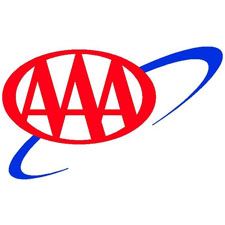
The national average price for a gallon of regular self-serve gasoline rose to $3.72 on Friday. This price is 5 cents more expensive than one week ago and 29 cents more expensive than one month ago. Today’s price is 14 cents more expensive than the same day last year.
While the national price at the pump continues to rise, it remains 22 cents below the yearly peak price for 2012 of $3.94 on April 5 and 39 cents below the all-time high of $4.11 on July 17, 2008. Friday’s national average of $3.72 per gallon is 3 cents shy of the record high for the day (8/17) of $3.75 per gallon set on 2008. It is likely that, as soon as this weekend, the daily price will be the highest ever for that calendar day.
Last week marked the first time since mid-May that the price of crude oil settled above $90 per barrel every day for a week, and the trend continued this week. Crude oil topped the $95 per barrel mark at Thursday’s close, the highest close since mid-May and a return to a level not seen in several months. The strength in the market stems from both continued concerns about overall supplies of crude oil amid increased saber-rattling between Israel and Iran (Iran is the second-biggest oil exporter in the Organization of Petroleum Exporting Countries – OPEC – and has seen a sharp drop in output due to embargoed oil sales), continued conflict in Syria, as well as indications that domestic demand may be rising in the face of falling supplies caused by operating issues at several refineries. There was also some profit taking from the huge jump this week, as well as some support from rising equities and a weaker U.S. dollar. Crude oil closed the week at $96.01 Friday, up 3.4 percent for the week.
In its weekly report, the Energy Information Administration (EIA) reported the nation’s crude oil stocks dropped by 3.7 million barrels (or 1 percent) to 366.2 million barrels, greater than a forecasted 1.7 million barrel drop and 3.4 percent above year-ago levels. Gasoline stocks fell by 2.4 million barrels (or 1.2 percent) to 203.7 million barrels, greater than a forecasted 1.5 million barrel drop, to settle in the lower half of the average range and 3 percent lower than year-ago levels. Gasoline demand was measured at 9.308 million barrels per day (bpd) by the EIA, up 468,000 bpd on the week and topped last year by 113,000 bpd. It was only the third time in 2012 that demand bettered 9 million bpd, and it is the highest number since July 1, 2011.
“Motorists are paying more for gasoline than they did this time last year, following the upswing in prices at the pump since July 4th,” said Martha M. Meade, Manager of Public and Government Affairs for AAA Mid-Atlantic. “The outlook for the next few weeks is grim in terms of costs at the self-serve kiosk. Experts see prices rising through Labor Day, but they do not expect a big spike considering rising prices coincide with the end of the summer driving season. This is typically a time when gas expenditures start a downward trend, as long driving vacations decrease and kids are back in school, however recent trends have been anything but typical so it may very well be a wait and see as autumn approaches.”
Despite recent increases in prices at the pump, motorists may feel they are paying less for gasoline this year than they did in 2011 (the highest year on record). However, this may not be the case at all. Analysts believe the summer’s gas price increases, a trend not typically seen during the latter part of the summer driving season, could put us on course to pay more in 2012. This would make 2012 the costliest year ever at the gas pump. Back in June, prices were dropping steadily, leading some analysts to say prices would be at $3.00 per gallon by the fall. Now some are saying prices could top $4.00 in some areas before dropping in the fall. Whatever the case, most economists agree that if gas prices continue to keep climbing, it could slow down the rebound in consumer spending.










